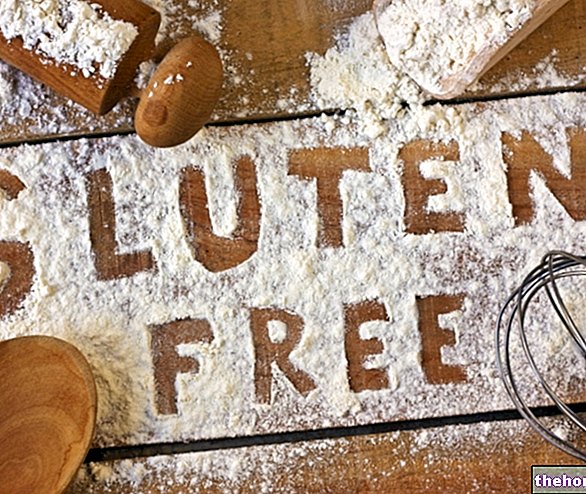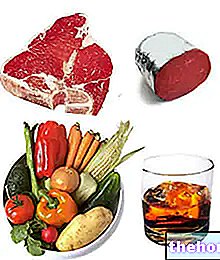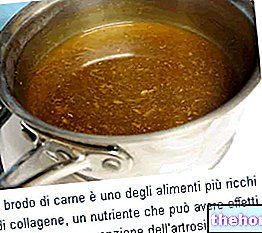Nervous anorexia
Anorexia nervosa is an eating disorder (DCA) characterized by: underweight, fear of gaining weight, strong desire to lose weight and dietary restriction.

The causes are unknown and it is assumed that the pathological mechanism affects the socio-cultural and psychological sphere; psychiatric comorbidities, such as anxiety, depression and obsessive compulsive syndrome, are not uncommon.
Organic complications related to anorexia nervosa can include: severe and underweight malnutrition (always <18.5 BMI), amenorrhea, osteoporosis, infertility and heart damage.
The treatment for anorexia nervosa is very complex and involves the multidisciplinary intervention of: psychiatrist, psychologist, internist and dietician.
Dietary implications
The diet for anorexia nervosa is NOT aimed at healing from the mental disorder, but it is still a necessary aspect for the survival of the subject. In particular, the diet plays an essential role such as:
- Support of the organism: avoids the onset of metabolic complications.
- Food education: helps the patient to re-establish a healthy relationship with food
However, it should be remembered that the compliance of the diet in eating disorders is very low, especially in anorexia nervosa.
In fact, anorexics are convinced that they can live better by excluding food from their existence and do not realize the consequences of such behavior.
The anorexic tends to avoid any external attempt (doctors, family and friends) to increase the amount of food in his diet, sometimes isolating himself from meals or hiding food.
This is why the "nutritional aspect" must be taken care of in detail; the food sources of an anorexic are very few, which is why it is important that they contain as many nutrients as possible.
The diet for anorexia is always characterized by simple, unprocessed, almost always unseasoned and NEVER "junk" foods.
Characteristics of the Diet
ATTENTION! Anorexia nervosa is NOT a condition that can be treated independently; it is recommended to consult with specialists in the treatment of DCA, relying on specialized structures (when necessary).
The diet for anorexia nervosa must possess some fundamental characteristics, which affect the nutritional, organic, psychological-educational and behavioral spheres.
The table below summarizes some of the key points for an anorexic person's diet.
EDUCATIONAL FEATURES
Calorie intake as close as possible to normal, without too many pretensions!
The diet for anorexia must oppose a total refusal to eat, which is why, sometimes, a single extra spoonful of soup is a great achievement.
Attempt to eat meals with friends.
Conviviality is a preventive factor against anorexia nervosa. In addition, by doing so, the anorexic cannot hide food or induce self-induced vomiting. It is a very difficult correction to implement since, often, the subject feels a strong shame or fear of eating in front of others.
Splitting of meals into very small and digestible portions.
The stomach of the anorexic is often of reduced size and function. Provided that the subject agrees to eat, it would be helpful if he did not experience negative feelings of gastric fullness or digestive difficulties.
Foods must be cooked naturally (boiled, steamed, etc.) and with little added fat.
Foods in liquid form (semolina, vegetable purée, etc.) are useful.
Non-aggressive attitude.
The meal must be proposed with delicacy, without impositions that could trigger instant rejection.
On the other hand, anorexics often have a temperament that is difficult to manage. This is where the experience of health technicians comes into play.
Wealth of essential nutrients.
Although scarce, the "anorexia" diet must be as rich as possible in essential nutrients. Among them: vitamins, mineral salts, amino acids and fatty acids.
Gradual insertion of food. Often, it is initially more profitable to let the anorexic choose which foods to eat.
It is advisable to start with the foods they like or "allowed" from their diet and decide together what to add in the future.
Variety.
Alternating foods and trying to choose at least one food for each fundamental group is an aspect that, in the long term, favors the coverage of various nutritional needs.
Personalization.
The "anorexia nervosa" diet must be 100% personalized.
Each case is unique, which is why there are no highly specific guidelines.
Whenever possible, the anorexia nervosa diet should include a dietary supplement plan. Some products, such as liquid amino acids, salts and vitamins (in soups, semolina, etc.), can be added to foods.









.jpg)


















